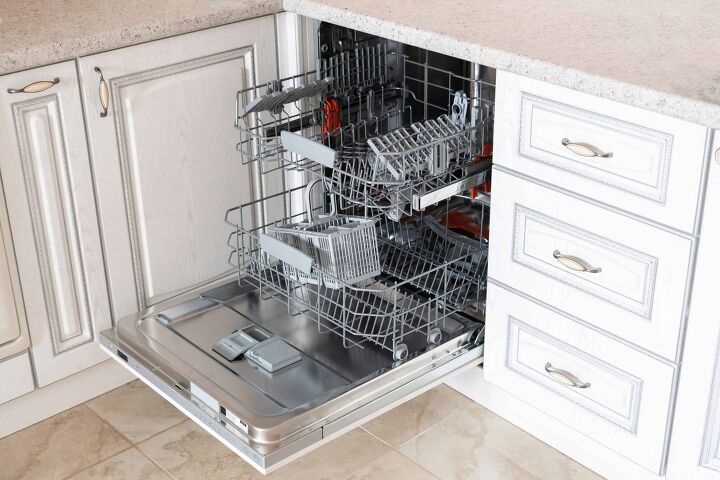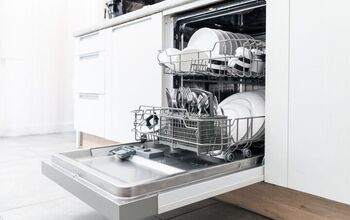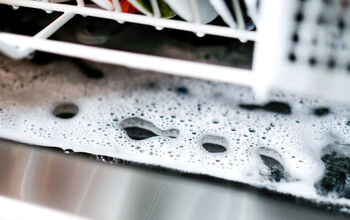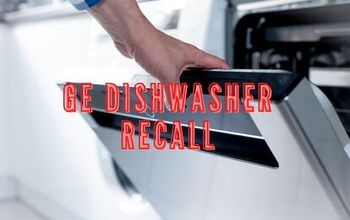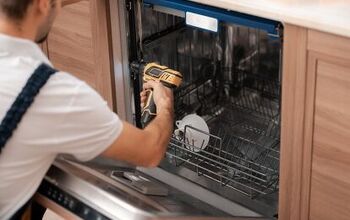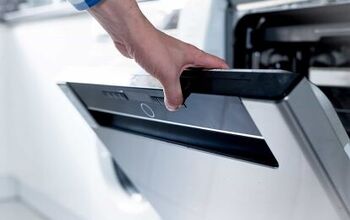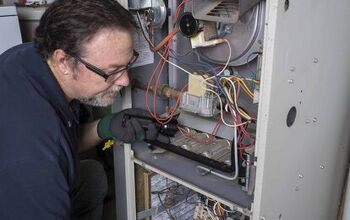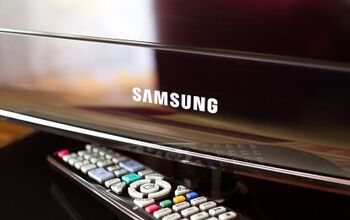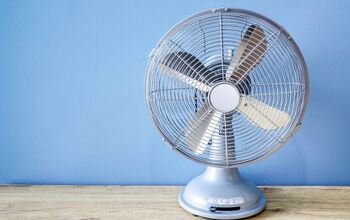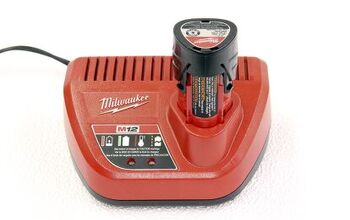Why Is My GE Dishwasher Not Filling With Water?

A good friend of mine said, “Technology’s only worth it when it works.” He’s right, especially when it comes to household appliances like dishwashers. Every brand has its own issues, including GE. One of General Electric’s more common dishwasher problems deals with a washer that just won’t fill with water. So, what gives?
Inspect and clean or replace your water inlet valve if your GE dishwasher won’t fill with water. Check your float switch to make sure that it is connected and adjust it if it isn’t. Install a water softener if you find hard water stains in your dishwasher which can stop it from filling.
A dishwasher that won’t fill with water won’t do much washing at all. So, here’s how you can fix it and how you can prevent your washer from breaking in the future.
Do You Need Appliance Repair Services?
Get free, zero-commitment quotes from pro contractors near you.

How To Troubleshoot A Dishwasher That Won’t Fill
If your dishwasher is having water flow issues, then you are probably dealing with a water supply or a water regulation issue. The best way to fix this problem is to troubleshoot your dishwasher. Here’s how to do it:
- Turn on the water in your sink and check its flow. In many cases, the dishwasher itself may not be the problem. Rather, it’s actually the water flow. If your water pressure seems low in your sink, call a plumber. This is a water flow issue rather than a dishwasher issue.
- Look at your float switch. Your float switch is going to be close to the bottom of the dishwasher and is designed to detect water levels. If it’s stuck too low or defective, your water will get shut off prematurely. The best way to handle a stuck float switch is to replace it or to have a plumber look at it.
- Take a look at your water inlet valve. If your float switch and water flow are fine, the issue is going to be your inlet valve. When clogged or defective, your valve won’t allow much water to enter the washing area. If you have a clog in your inlet valve, removing your valve’s clog will fix it. If the valve is defective, the only thing you can do is replace it.Because water inlet valves tend to be tucked away in GE machines, there is a chance that you may need to call a plumber. However, if you’re handy with appliances, you might be able to remove clogs and replace this part on your own.
- Call a plumber if no issue seems to be visibly apparent. Though exceedingly rare, this can be a sign of another bigger problem with your dishwasher.
How Much Does It Cost To Repair A Dishwasher That Won’t Fill?
If you just have a clog in your inlet valve, then it won’t cost anything to repair. However, many machines that have this problem will require a float switch or inlet valve replacement. Most GE float switches will cost between $20 and $100. If you need an inlet valve, expect to pay around $20 for the part.
Though some people are able to replace the defective parts on their own, most people tend to hire plumbers or appliance repairmen to do this. A typical dishwasher repair call for a GE model that won’t fill up will cost between $100 and $200. This includes the parts and labor for
Are Inlet Valves And Float Switches Covered By GE’s Warranty?
GE appliances are known for coming with a five-year warranty. If your dishwasher has a part failure while it’s still under warranty, you might be in luck. General Electric has a fairly solid warranty policy that covers malfunctioning parts. This includes things like float switches and inlet valves.
To get a service call from GE, call their warranty hotline and explain the issue. From there, a service operator will connect you with a repairman who can help fix your dishwasher at a discount.
How Serious Is This Problem?
As far as washing machine issues go, this is not that big a deal. It’s an easy repair compared to most other issues that could happen with a GE machine. Assuming you don’t have water flow issues with your plumbing, you won’t even need to spend too much to get it fixed. Even so, it’s a repair that you need to get done in order to get your dishes cleaned.
What you should be aware of is what these kinds of problems mean. Float switches and inlet valves tend to be some of the first things to go bad in a dishwasher. So if you notice that your parts are starting to go, it may be time to start saving up for your next washing machine.
What Makes A GE Dishwasher Prone To Clogging?
There are several things that can cause a dishwasher’s parts to fail in a way that reduces its ability to load up.
The most common reason why you might end up with a clogged inlet valve or stuck float switch deals with the way that you put your dishes into your washer. If you have scraps of food or excessive levels of grease on your plate, that could potentially jam into the plumbing portions of your dishwasher. This, in turn, could cause a clog.
Another issue that causes wear and tear on your dishwasher’s parts is hard water. Calcium deposits are a leading cause of inlet valve issues as well as plumbing problems. If you have hard water, you should consider getting a water softener in your filter if at all possible. Otherwise, it may be best to plan ahead.
Do Other Brands Have Water Flow Issues Too?
Though your particular problem might be with your GE dishwasher, you shouldn’t assume that other dishwashers won’t have the same problem. Issues with inlet valves and stuck float switches are common among almost every single brand of dishwasher out there. So, don’t hold it against GE. This is just a generic dishwasher problem.
Do You Need Appliance Repair Services?
Get free, zero-commitment quotes from pro contractors near you.

Related Questions
How much does a General Electric dishwasher cost?
This depends on the model that you choose and the number of amenities you want to have in your washer. Most GE dishwashers will run between $900 to $1400 per unit. If you want an extended warranty, this will most likely cost extra.
Do GE dishwashers have a fuse?
Most GE dishwashers will have a thermal fuse, so yes. If the thermal fuse overheats and blows, the dishwasher will not start.
How long should a dishwasher last?
With typical use and regular maintenance, you should expect a dishwasher to last around eight to 10 years. With that said, top-rated dishwashers and luxury machines may be able to last up to 15 years (or more) if well kept.
How often should I run a dishwasher?
If you are doing a maintenance run, the best thing you can do is run it at least once a week. This will help keep your dishwasher’s seals supple and also keep your motor in working order.
Which dishwasher brand lasts the longest?
According to the company’s own studies, it’d be Miele. A recent study revealed that a Miele dishwasher can last as long as 20 years–roughly double the national average. However, it’s worth noting that other studies had this as a point of contention. When choosing a dishwashing brand, it’s best to take studies on a holistic basis and look at the overall durability trend.

Ossiana Tepfenhart is an expert writer, focusing on interior design and general home tips. Writing is her life, and it's what she does best. Her interests include art and real estate investments.
More by Ossiana Tepfenhart



